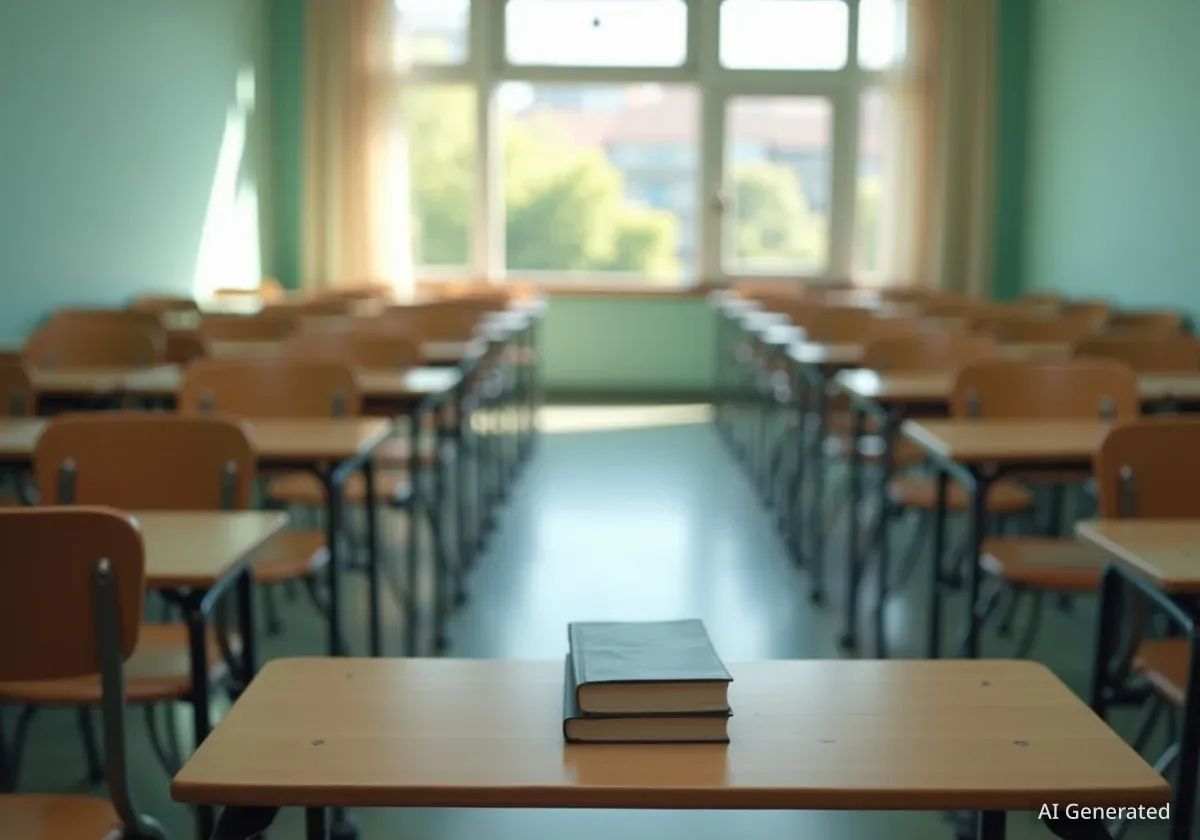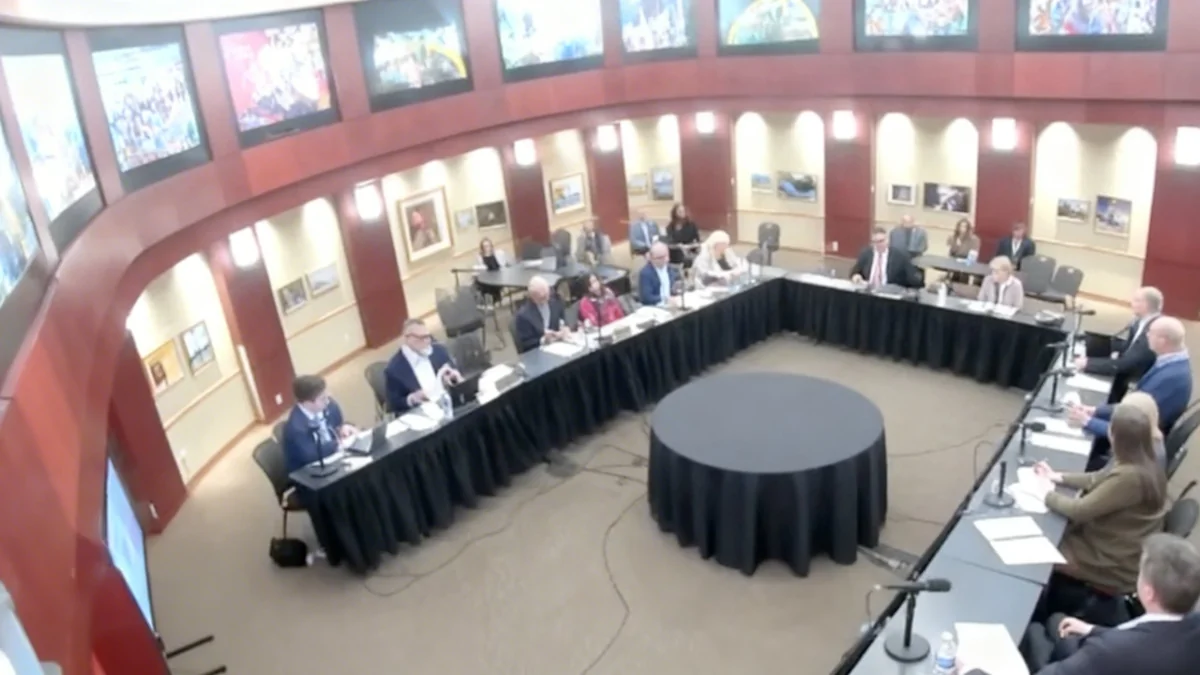An Illinois state representative has introduced new legislation aimed at altering a recently signed law that mandates mental health screenings for students in public schools. The challenge, led by Representative Brad Halbrook, centers on parental consent and who is qualified to conduct the student evaluations.
The original law, Senate Bill 1560, was signed by Governor J.B. Pritzker in July and is set to take effect during the 2027-2028 academic year. It requires public schools to offer these screenings to students from third to twelfth grade.
Key Takeaways
- A new Illinois law, SB1560, will require public schools to offer mental health screenings for students in grades 3-12 starting in the 2027-2028 school year.
- The law currently operates on an "opt-out" basis, meaning students are included unless a parent or guardian actively withdraws them.
- State Representative Brad Halbrook has filed House Bill 4115 to change the system to "opt-in," requiring explicit parental permission for a student to be screened.
- SB1560 does not mandate that screenings be conducted by mental health professionals, allowing teachers or other school staff to perform the evaluations.
Understanding the New Screening Mandate
In July, Governor J.B. Pritzker signed Senate Bill 1560 into law, establishing a new requirement for Illinois public schools. Beginning with the 2027-2028 school year, schools must provide mental health screenings for students across a wide range of grade levels, from third through twelfth grade.
This initiative is designed to identify students who may need mental health support. However, the law is specific to the public education system. It does not apply to students attending private schools or those who are homeschooled.
While the law creates a statewide framework, it also gives individual school districts some flexibility. Schools will have the ability to opt out of offering the screenings, though the specific process for how a district can do so may differ from one location to another.
What is a Mental Health Screening?
A mental health screening is typically a brief questionnaire or assessment used to identify potential mental health concerns. It is not a diagnosis. The goal is to detect early signs of conditions like anxiety, depression, or other behavioral issues so that students can be connected with further support if needed.
The Debate Over Parental Consent
A central point of contention with SB1560 is its approach to parental consent. The law is structured as an "opt-out" system. This means that students will be automatically scheduled to participate in the screenings unless their parents or legal guardians take specific action to remove them from the program.
In response to this framework, Representative Brad Halbrook filed House Bill 4115. This new bill seeks to fundamentally change the consent model. Halbrook, who described the original law as “intrusive,” proposes shifting to an "opt-in" process.
If HB 4115 were to pass, parents would need to provide explicit, advance permission before their child could receive a mental health screening. This would reverse the current default, placing the decision to participate entirely in the hands of parents from the outset.
Opt-Out vs. Opt-In Explained
- Opt-Out (Current Law): Assumes consent is given. A parent must take action to prevent participation. This model often results in higher participation rates.
- Opt-In (Proposed Change): Assumes no consent is given. A parent must take action to allow participation. This model prioritizes explicit parental choice but can lead to lower participation.
Proponents of the opt-in model argue that it ensures parents are fully aware and have made an informed decision about their child's participation in what can be a sensitive evaluation.
Qualifications of Screeners Raises Questions
Another significant concern raised about SB1560 involves the qualifications of the individuals who will conduct the screenings. The text of the law does not require the evaluations to be performed by a licensed mental health professional, such as a school psychologist, social worker, or counselor.
Instead, the law permits a teacher or another school staff member to administer the screenings. This provision has drawn criticism from those who believe that specialized training is necessary to properly evaluate a student's mental state and handle the sensitive information that may be revealed.
Who Typically Works in School Mental Health?
According to the National Association of School Psychologists, school psychologists have specialized training in both psychology and education. Their roles often include mental health interventions, behavioral management, and student counseling. The recommended ratio is one school psychologist for every 500 students, though many districts nationwide do not meet this standard.
Critics argue that asking teachers, who are already managing heavy workloads, to take on this responsibility without formal clinical training could lead to inaccurate assessments or mishandling of confidential information. The concern is that a non-professional might misinterpret a student's responses, causing unnecessary worry or, conversely, missing critical warning signs.
Next Steps for the Legislation
With the introduction of House Bill 4115, the debate over school-based mental health screenings in Illinois is set to continue. For Representative Halbrook's bill to become law, it must proceed through the legislative process, which includes committee hearings, votes in both the Illinois House and Senate, and ultimately, the governor's signature.
Meanwhile, school districts across the state have several years to prepare for the implementation of SB1560. The law is not scheduled to go into effect until the start of the 2027-2028 school year. This timeline provides a window for further debate, potential amendments, and for districts to develop their specific protocols for screenings and parental notifications.
The outcome of this legislative challenge will determine how millions of Illinois families interact with the state's new approach to student mental wellness. The core of the issue remains a balance between proactive mental health support in schools and the fundamental role of parents in making healthcare decisions for their children.





